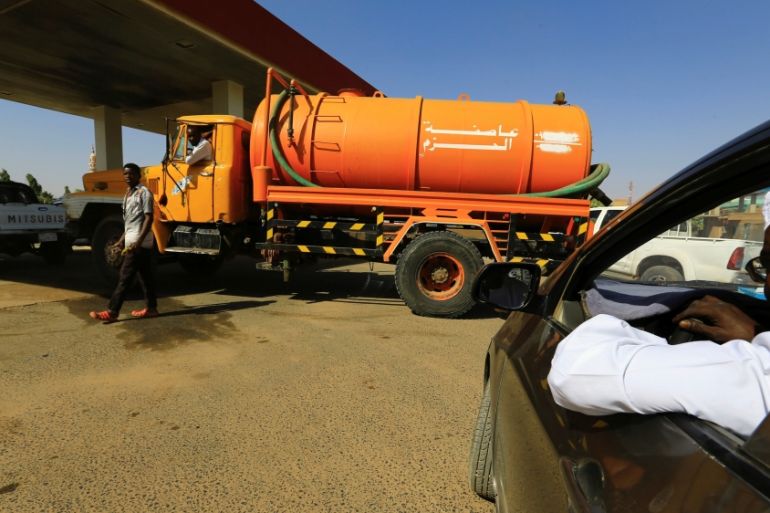Sudan police fire tear gas on protest over price hikes
Subsidy cuts have led to sharp rise in prices of food and medicine, leading opposition parties to call for a strike.

Sudanese police forces have fired tear gas at about 300 Sudanese protesters demonstrating against a government decision to cut fuel subsidies.
|
|
Groups have staged persistent protests for weeks over the subsidy cuts, which have led to a sharp rise in the cost of other goods, including medicines.
Keep reading
list of 4 itemsRussian playwright and director go on trial over ‘justifying terrorism’
UK court to rule on Julian Assange extradition appeal: What could happen?
‘Grim reminder’: Sri Lanka’s Tamils mark 15 years since end of civil war
Several opposition groups called for a three-day nationwide strike earlier this week, which received a mixed response.
“No, no to high prices,” shouted about 300 men and women as they marched along a main street of Omdurman near Khartoum on Wednesday morning, an AFP correspondent reported.
Anti-riot police swiftly arrived at the scene and fired tear gas to disperse them, the reporter said.
Sudanese authorities have cracked down on protests in an attempt to prevent a repeat of the deadly unrest that followed a previous round of subsidy cuts in 2013.
Dozens of people were killed after large demonstrations were crushed, drawing international condemnation.
Newspaper crackdown
Authorities have already arrested more than a dozen opposition politicians in recent weeks, and also cracked down on newspapers critical of subsidy cuts.

Members of the powerful National Intelligence and Security Service (NISS) have seized entire print runs of several dailies that reported the opposition strike call or questioned the cuts.
Authorities have also halted broadcasts by Omdurman Channel, a private television channel, accusing it of operating without a licence, a charge its owner denied.
“Today at 8:30pm we received a letter from the authorities saying the channel has been stopped from broadcasting because it didn’t have a licence,” Hussein Khojali, the channel’s owner, told AFP on Sunday.
“This is completely false,” he said, adding that the channel had obtained a licence six years earlier when it had been launched.
Media in Sudan are frequently targeted for their reporting. The country regularly ranks near the bottom of international press freedom rankings.